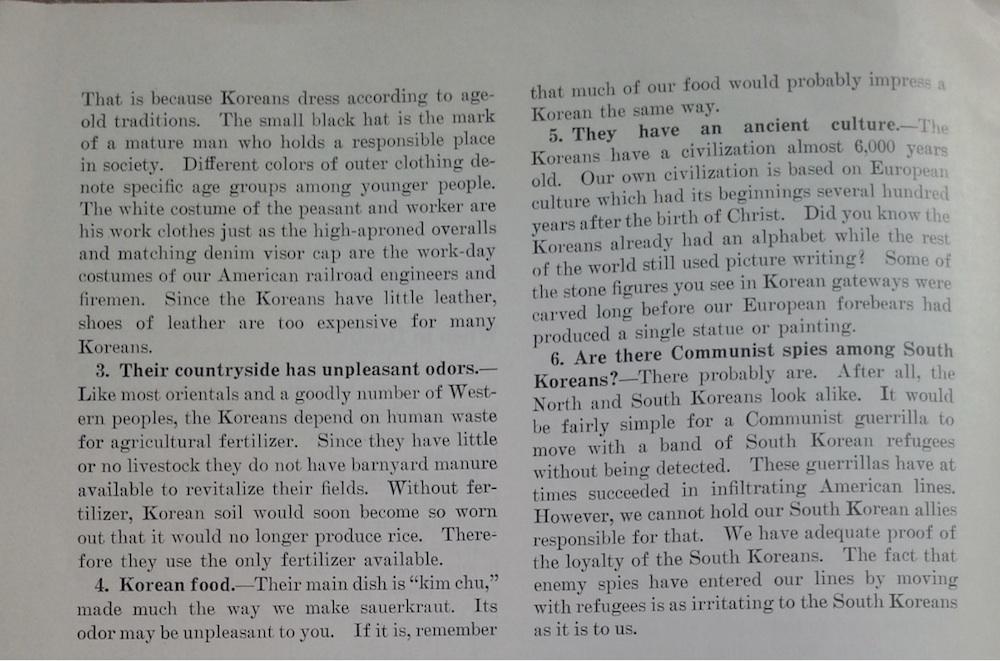The Vault is Slate’s history blog. Like us on Facebook, follow us on Twitter @slatevault, and find us on Tumblr. Find out more about what this space is all about here.
This list of things soldiers should remember when preparing to go to Korea is part of a pamphlet titled “Getting Along With Our Allies,” published by the Department of the Army in 1950. (You can read the whole pamphlet here.)
In the aftermath of World War II, and with the beginning of the Cold War, the United States military anticipated involvement in far-flung conflicts. By 1950, when the American presence in Korea amped up in response to the Communist invasion of the South, the military hoped to smooth the alliance by offering a little bit of targeted cultural counseling for soldiers about to ship to the peninsula.
The pamphlet asked soldiers to be open-minded, tolerant, and smart about their interactions with local people. “Respect your Ally as a man,” the pamphlet advised, noting that in some places, soldiers would observe “abject poverty, filth and disease.” They shouldn’t judge the allies for their lower standard of living: “These people have not had the opportunity—for any number of reasons—to build a society like our own.”
For the sake of the alliance, soldiers should refrain from using “uncomplimentary nick names,” pestering local women, getting drunk, spending too much money, and violating the “cherished customs” of the local culture. These injunctions were accompanied by comical representations of “ugly American” soldiers in violation of the advice. (One image, of a soldier using lit dollar bills to kindle a cigar, is particularly humorous.)
This list of Korea-specific advice draws from these larger themes of toleration. If the Korean countryside smelled bad to an American nose, a soldier should remember that they used human waste for fertilizer not out of choice, but out of necessity. Likewise, kimchi (spelled “kim chu” here) was pungent, but “much of our food would probably impress a Korean the same way.”
The list counsels respect despite the Koreans’ “physical smallness,” pointing to the three runners Kee Yong Ham, Gil Yoon Song, and Yun Chil Choi, who won all three top medals in the April 1950 Boston Marathon.
I found this pamphlet in the files of the delightfully eclectic Prelinger Library in San Francisco.

Prelinger Library.